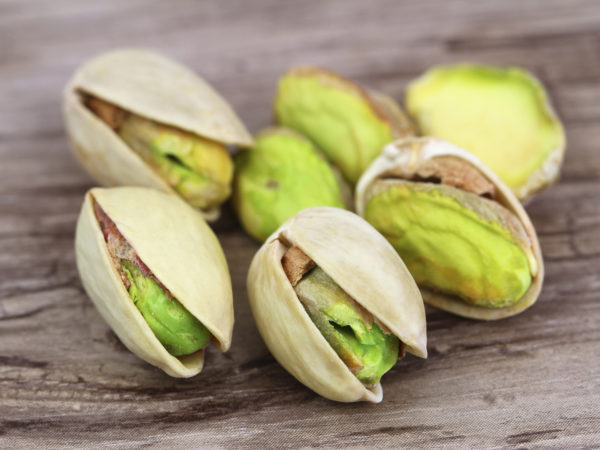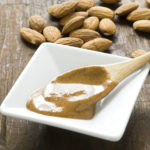Pining for Pistachios?
You have said that nuts contain monounsaturated fat that is good for the heart. Are pistachios among those that are heart healthy? Which nuts have the most benefit?
Andrew Weil, M.D. | January 23, 2003

Updated on 3/31/2005
Pistachios are indeed among the nuts that contain heart-healthy fat, and overall, they have a very good nutritional profile. According to the California Pistachio Commission, a one ounce serving of pistachios (about 47 nuts) provides more fiber than a half cup of spinach and the same amount as an orange or apple. They also are good sources of vitamin B-6, thiamin, copper, phosphorus, and magnesium. An ounce of pistachios contains 165 calories.
You may be interested to know why some pistachios are red or white and others are tan. When first imported into the United States, the shells were dyed to mask unattractive discoloration and markings left by harvesting practices and to differentiate them from other nuts sold in vending machines. Although that’s no longer necessary, a percentage of pistachio shells are still dyed red or white because some consumers prefer the bright colors. I recommend avoiding dyed nuts and eating only the natural ones that are now widely available. The green hue of the actual nut is natural and comes from chlorophyll.
With few exceptions all nuts contain monounsaturated oils and eaten in moderation can lower your risk of heart disease and heart attack. The exceptions are chestnuts, which are best considered a starchy vegetable, and coconuts, which contain a lot of saturated fat. Peanuts, which are actually legumes, not nuts, have a less desirable fatty-acid profile. Walnuts are particularly good because they are a rare vegetable source of omega-3 fatty acids.
I love nuts, eat some daily and use them in cooking. I buy mostly raw, unsalted nuts and refrigerate them until I need them. To keep pistachios fresh and crunchy, store them in an airtight container to prevent them from drawing moisture from the air and becoming soggy. If you keep them in the refrigerator or freezer, you can store them for as long as a year.
Andrew Weil, M.D.












